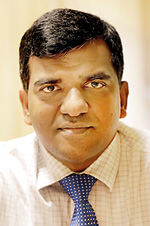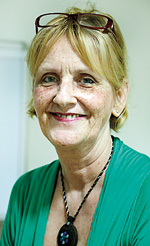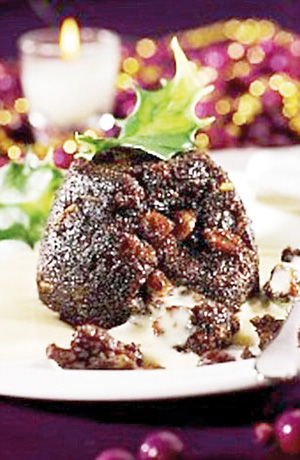Have yourself a ‘less-sweet’ Christmas!
’Tis the season to be jolly…and to keep an eye on your sugar intake too. Sri Lankans know too well that celebrations in this country come with a significant amount of extra carbohydrates and sugar. So how can we eat healthy during the Christmas season? Here Consultant Endocrinologist and Diabetologist Dr. Prasad Katulanda and dietician Sigrid de Silva speak to MediScene about the risks of over-consuming sugar during the season and what you can do to curb it.

Dr. Prasad Katulanda

Sigrid de Silva
Sugar can lead to many diseases of the body, chief among them diabetes. Diabetes is a very real and serious risk of excess sugar intake, yet it hasn’t got alarm bells ringing with many Sri Lankans. In Sri Lanka the prevalence of diabetes is about 11% in rural areas, 13% in urban areas and 11% overall. The overall rate is projected to increase to 13.9% by 2030.
Dr. Katulanda says that on average, a Sri Lankan adult consumes 30 kilos of sugar per year and recommends cutting out as much sugar as possible from your diet. “Soft drinks tend to be the biggest source of sugar during festivities,” he noted, adding that certain drinks can contain the equivalent of eight teaspoons of sugar.
“Sri Lankans consume too much sugar around the year,” agrees Sigrid de Silva. During the festive season however this tends to spike further. Sigrid says that a small piece of love cake or Christmas cake can pack in about 300 calories-but more insidious is your sugar intake through beverages like tea and coffee. “Even if you take one teaspoon with your drink, it’s too much for your system,” she notes.
Alcohol intake during the season can also affect your sugar levels. It is difficult to specify an ideal number of glasses for an evening, says Sigrid, as this will differ based on age, weight and health. However she notes that most alcohol contains a certain percentage of sugar-so don’t substitute drink for the food.

She also advises that traditional Christmas treats such as cake and pudding be made with a 25-30% reduction of the suggested sugar amount. “My mother used to be very conscious about our sugar intake,” she remembers “and she would make our Christmas treats like this. It made the cakes tastier actually, because the taste wasn’t overwhelmed by the sugar in it.”
The idea is not to stop eating these foods altogether. “You can enjoy the season while being conscious of what you’re putting in your body,” says Sigrid. “At functions, take a very small portion of everything, instead of heaping your plate with desserts.” She also recommends having normal meals throughout the day before a function, instead of taking lighter meals to balance out over-consumption in the evening. This way, you are less likely to overeat at the event.
Dr. Katulanda also recommends that during the season, you try to make up for the extra sugar that will inevitably be consumed by eating less starchy food for main meals. To do this, you could try following the Plate Model when serving your food; one quarter for carbohydrates (rice, potatoes, noodles), one quarter for protein and the rest for green vegetables. For canapés that are taken while consuming alcohol, he recommends substituting fried nibbles with seasoned vegetables such as broccoli.
For those of you who may be planning to indulge to your heart’s content just for these few weeks, he has a word of warning-“excessive sugar consumption, even if it is for a short period of time, can still damage your body. The wise thing to do is to take it in moderation, and make sure you get plenty of physical exercise during the holiday as well.”
“Forty years ago cigarettes used to be the norm, a party essential,” says Sigrid. “Today, it’s taboo because of the health risks associated with use. I would say the same thing could happen to sugar.” But will it be too late for you then?


